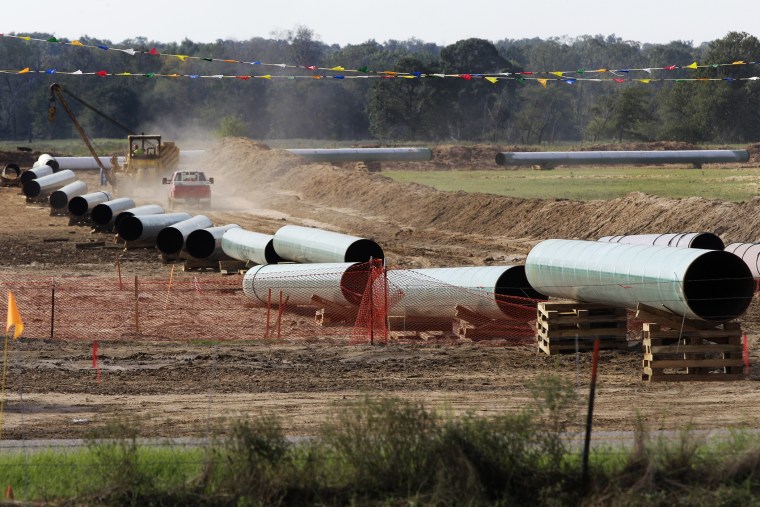Now that Republicans control both the House and the Senate, President Obama is a man with some very difficult decisions ahead of him. One of the toughest choices may be whether to approve the Keystone XL pipeline project, a decision his administration has been putting off for months. Although the White House was originally supposed to have a definitive answer by May 7, the Obama administration announced in April that it would be delaying its answer until after the midterms.
Now the midterms are over, and the party that won majorities in both chambers of Congress is likely to agitate for approval of the project. Keystone XL, a proposed extension to the pipeline that already carries tar sands oil from Canada to the United States, would bring several hundred thousand additional barrels of oil per day. Republicans and some Democrats have argued that the extension would provide a needed boost for the American economy, but the environmental movement has lobbied vigorously against it.
Caught between the environmental activists in his base and powerful business interests, President Obama has largely avoided leaning too far in one direction or the other. He continued to equivocate in a Wednesday afternoon press conference following his party's midterm losses.
"I am just going to gather up facts," said the president, referring to the State Department's review process for assessing whether to approve the pipeline. One of the factors to be on the lookout for, said Obama, was ensuring that the proposed extension "doesn't, on net, increase climate change." (The State Department released an Environmental Impact Statement in January finding little chance of significant environmental damage, but environmental groups believe the study was deeply flawed.)
Unless Obama moves quickly -- which he has little incentive to do, given that he'll make someone unhappy either way -- Congress might take the matter out of his hands. Given the composition of the Senate coming out of Tuesday night's Republican victories, the deliberative body may now have a filibuster-proof majority that supports legislation to force approval of the pipeline with or without the administration's consent. If President Obama has any intention of killing the pipeline extension, he would need to nix it during the lame duck session, before the new Republican majority has a chance to push through its legislation.
RELATED: The last, best chance to kill the Keystone pipeline
Environmental groups are already mobilizing to put pressure on the White House, but so far the president has given no indication of what he might do. In the meantime, supporters of the pipeline are likely smiling over Tuesday's results.
